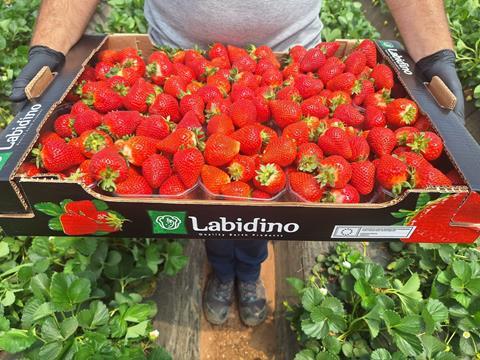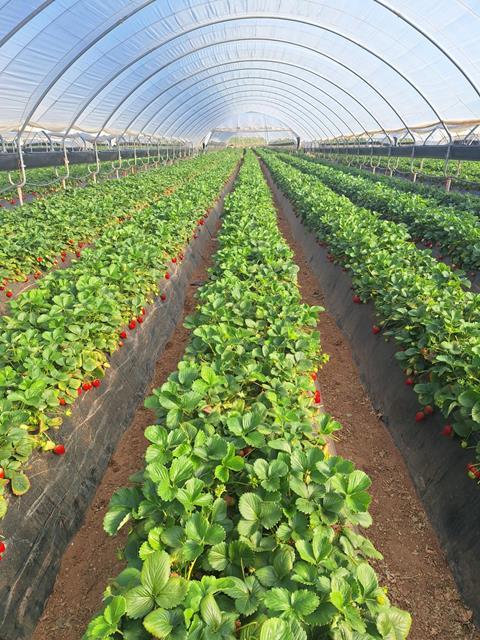Sustainability is becoming a big focus in Greek strawberries, according to Alexandros Polydoropoulos, agronomist at producer Labidino, not least the responsible use of water
How is the final part of the strawberry campaign going in Greece?
Alexandros Polydoropoulos: We are now in the last month of the season, but we hope to continue maybe for a few days in June. It all depends on the export potential. In general, I would say that the feedback this season has been positive. Despite the lower production volume, the better price seems to have balanced things out.
This month we expect to pick the last 20-25 per cent of the potential yield from the fields. The quality of the fruit during this period is the most important aspect because production from other regions in Europe starts to enter the market. For that reason, we are trying to prolong sales with varieties that have a better shelf-life.

What are your main varieties? Are you looking at any new ones?
AP: This season the main varieties on our farm are Victory, Fortuna, Savana, Red Sayra and Red Sayma. We are also testing five other varieties to see if they are suitable for our cultivation practices. We are always looking for new varieties. The main features that we search for are quality, shelf-life, yield, picking speed and packing speed.
What export markets are you sending to?
AP: Currently we export to Germany, Austria, Poland, Serbia and Cyprus. The markets of eastern Europe are growing very fast and lately countries such as Romania, Latvia, Estonia and Lithuania are increasingly looking for strawberries out of season.
What are the main challenges at the moment?
AP: The labour shortage is a permanent problem in Greece and becomes worse when the tourist season starts. That’s when people from the fields move to the hotel and restaurant sector. Every year, new workers account for over half of the workforce and these people are not familiar with the work.
In addition, the ongoing recall of pesticides, resistant pathogens, the increase in the average temperature and reduced rainfall – these affect the performance of the crop. But it is really hard to say what the real impact will be in the future.
Is sustainability becoming more important?
AP: Sustainability is the next big thing in farming. Growing without abusing natural resources and polluting the environment is a big priority for us. For next season, the Spring scheme will be implemented on our farm to ensure the responsible use of water. In the long term, the importance of treating the farm like an ecosystem is clear, protecting biodiversity and ensuring a good balance between pests and their natural predators. Regarding our energy footprint, we have established solar panels for electricity production, which already covers most of the energy we use in the packhouse.
There is still a lot of debate about packaging. What sort of packaging are your customers demanding?
AP: Packaging materials are indeed an important issue in the strawberry category due to the high amount of waste and the impact that has on the environment. We mostly use flowpacked punnets and cardboard crates, but wooden crates are also available for certain markets.
The supermarkets are concerned with the extensive use of plastic and they are pushing us to reduce our usage. But this kind of packaging is ideal for perishable fruits like strawberries and is the most practical way for consumers to transfer the fruit to their house. Eco-friendly materials like cardboard punnets could be a possible solution, and some companies are starting to use this kind of packaging abroad, but here in Greece it is still at an early stage.




